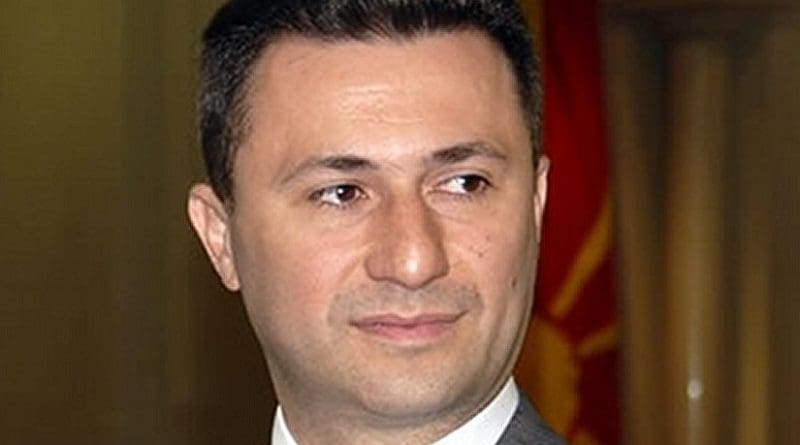Macedonia: Prime Minister Gruevski Confirms Resignation
By Sinisa Jakov Marusic
Macedonia’s embattled PM Nikola Gruevski announced in a TV address on Thursday that he will submit his resignation on Friday, conditioning his stepping down with the April elections date.
Gruevski said he would submit his resignation to the speaker of parliament on Friday morning. The resignation would come into force on 100 days before the elections. However, Gruevski also noted the uncertainty over the elections date following statements by opposition officials that there are no conditions for free elections as crucial reforms of the political crisis agreement have not been fulfilled.
“The deal envisages the PM to step down 100 days before elections scheduled on April 24, I want to end all uncertainty for this country to move forward. Tomorrow morning I will submit my resignation to the speaker of parliament,” Gruevski told the TV address.
Gruevski’s TV address comes in the wake of tomorrow’s visit to Skopje by the European Enlargement Commissioner, Johannes Hahn who is coming to help resolve overdue issues from the political crisis agreement, including the burning issue of the date of the elections.
“So far we have made numerous compromises. The opposition got two ministers and three deputy ministers, a special prosecutor was selected, the elections commission was elected that is dominated by opposition members. Our obligations have been fulfilled.
“Unfortunately the latest statements by SDSM have cast a shadow on the date for elections, I am against this attempt for the country to be held hostage. The elections on April 24 will end all uncertainty and show that Macedonia is strong and resistant,” Gruevski said.
According to the EU-brokered crisis agreement reached last summer aimed at resolving the country’s long-running political crisis, Gruevski was obliged to resign in the first half of January, at least 100 days before the April 24 elections.
He should allow his VMRO DPMNE party to nominate an interim premier by January 15 as an additional guarantee that he does not interfere in the elections.
The central committee of Macedonia’s ruling party VMRO DPMNE decided on Thursday night to nominate the party’s secretary general Emil Dimitriev as Prime Minister for the interim government that should be in charge until the early elections, scheduled for April 24 according to the political crisis agreement mediated by the EU.
Asked what would happen if the opposition demands that elections are postponed, VMRO DMPNE officials told media they hope that would not be the case.
The crisis in Macedonia revolves around opposition claims that covertly recorded tapes, which it has been releasing since February 2015, show Gruevski was behind the illegal surveillance of some 20,000 people, including ministers.
They insist that the tapes contain incriminating evidence against many senior officials.
Gruevski, who has held power since 2006, insists the tapes were “fabricated” by unnamed foreign intelligence services and given to the opposition to destabilise the country.
The EU crisis agreement last summer was designed to end the stand-off by putting in motion a set of reforms that would ensure free and fair elections.
Hahn arrives on Friday in Skopje to push through the crisis agreement.
“I expect that the outstanding elements of the political agreement will be resolved before or during my visit, allowing the election authorities to organise credible elections according to the agreed timetable,” Hahn said on Thursday before heading for Macedonia.
Hahn’s visit is also expected to resolve the dilemma about whether the snap polls, set for April 24, will need to be postponed or not.
In December, speculation multiplied about a possible postponement for one or even several months because of the unfulfilled tasks from the summer crisis accord.
Meanwhile the EU mediator in the talks between the government and the opposition aimed at implementing the crisis agreement, Peter Vanhoutte, summoned the political parties to renewed talks on Thursday.
“The meetings of the Political Working Group will continue until agreement is reached,” Vanhoutte told media.
He said today agreements still needed to be struck on the issue of media reform “as well as regarding the rule-book for the methodology for running and updating of the voters’ registry and the rule-book for the methodology for full access, changing and deleting data from the voters’ registry and the procedure for conducting field checks to update the registry”.
Failure to organize credible elections could plunge Macedonia into deeper chaos, in which case it would likely lose its ‘conditional’ recommendation for a start to EU accession talks.

